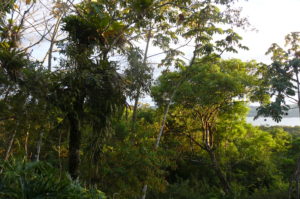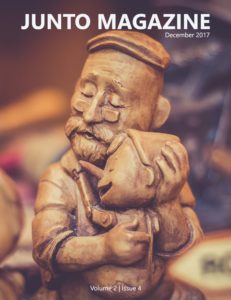“For the Homeric Greeks, kleos, fame, was made of song. Vibrations in air contained the measure and memory of a person’s life.
“To listen was therefore to learn what endures.
“I turned my ear to trees, seeking ecological kleos. I found no heroes, no individuals around whom history pivots. Instead, living memories of trees, manifest in their songs, tell of life’s community, a net of relations. We humans belong within this conversation, as blood kin and incarnate members. To listen is therefore to hear our voices and those of our family.
“To listen is therefore to touch a stethoscope to the skin of a landscape, to hear what stirs below.
“We’re all — trees, humans, insects, birds, bacteria — pluralities. Life is embodied network. These living networks are not places of omnibenevolent Oneness. Instead, they are where ecological and evolutionary tensions between cooperation and conflict are negotiated and resolved. These struggles often result not in the evolution of stronger, more disconnected selves but in the dissolution of the self into relationship.
“Because life is network, there is no “nature” or “environment,” separate and apart from humans. We are part of the community of life, composed of relationships with “others,” so the human/nature duality that lives near the heart of many philosophies is, from a biological perspective, illusory. We are not, in the words of the folk hymn, wayfaring strangers traveling through this world. Nor are we the estranged creatures of Wordsworth’s lyrical ballads, fallen out of Nature into a “stagnant pool” of artifice where we misshape “the beauteous forms of things.” Our bodies and minds, our “Science and Art,” are as natural and wild as they ever were.
“We cannot step outside life’s songs. This music made us; it is our nature.
“Our ethic must therefore be one of belonging, an imperative made all the more urgent by the many ways that human actions are fraying, rewiring, and severing biological networks worldwide. To listen to trees, nature’s great connectors, is therefore to learn how to inhabit the relationships that give life its source, substance, and beauty.” – The Songs of Trees: Stories from Nature’s Great Connectors, David George Haskell



